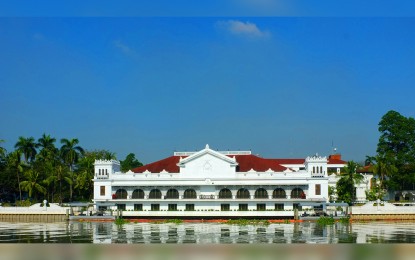
MANILA – Malacañang is leaving it up to Filipino voters to choose their preferred party-list group in the May 2022 polls.
“The public has the freedom to choose and elect leaders whom they believe will serve national interest and public welfare,” acting presidential spokesperson and Communications Secretary Martin Andanar said in a press statement.
This, as Andanar echoed the statements made by President Rodrigo Roa Duterte that progressive party-list groups are acting as “legal fronts” of the Communist Party of the Philippines (CPP).
“It is common knowledge that some organizations or individuals allied with communist groups have long wanted to enter the government through party-list groups or by supporting certain candidates,” Andanar said.
Despite this, the PCOO chief believes that voters have the right to elect their preferred candidates and party-lists.
“While their intentions may be suspect, we leave it to the citizenry to decide on this matter,” he added.
In a press statement on Tuesday, Andanar said while voters have the freedom to choose, it is also the government's duty to "inform, educate and enlighten the public to reject party-lists" denying they are urban operatives of the terrorist organization CPP-New People's Army-National Democratic Front (CPP-NPA-NDF).
"It is government’s sacred duty to defend and protect our Constitution and our citizens from these communist terrorists who have wreaked havoc and destroyed countless lives for over five decades," he said.
Citing Duterte, he said party-list groups Kabataan, Anakpawis, Bayan Muna, Alliance of Concerned Teachers and Gabriela or "KABAG" have purportedly been infiltrated by the CPP.
Andanar said the President himself enjoined voters not to bring them back to Congress.
Republic Act No. 7941 or the Party-List System Act provides for the election of party-list representatives.
Under the law, party-lists refer to "Filipino citizens belonging to the marginalized and underrepresented sectors, organizations and parties."
However, the Supreme Court ruled in 2013 that non-members of marginalized sectors may run as nominees of party-list groups.
The total number of party-list representatives must remain at 20 percent of the total number of seats in the House of Representatives as prescribed by the 1987 Constitution.
Last month, Duterte said he received an intelligence report about a supposed conspiracy between party-list groups and the CPP, which is listed as a terrorist organization by the United States, European Union, the United Kingdom, Australia, Canada, New Zealand, and the Philippines.
He said the party-list groups allied with the CPP are using public funds to support communist rebels.
Duterte also criticized the exploitation of the party-list system earlier this month, saying the rich used it to lobby for their interests in Congress.
He acknowledged the creation of the party-list system aims to give the underrepresented sectors of society a voice in Congress, but noted that it has been abused by the wealthy.
Duterte called for an amendment to the 1987 Constitution, which created the party-list system, urging future lawmakers to either form a Constitutional Assembly (ConAss) or a Constitutional Convention (ConCon) to fix the matter.
Election watchdog Kontra Daya earlier flagged at least 122 party-list groups – or around 70 percent of the 177 listed in the May 9 elections – for allegedly being identified with political clans and big business with unknown or unclear advocacies and representations. (PNA)
